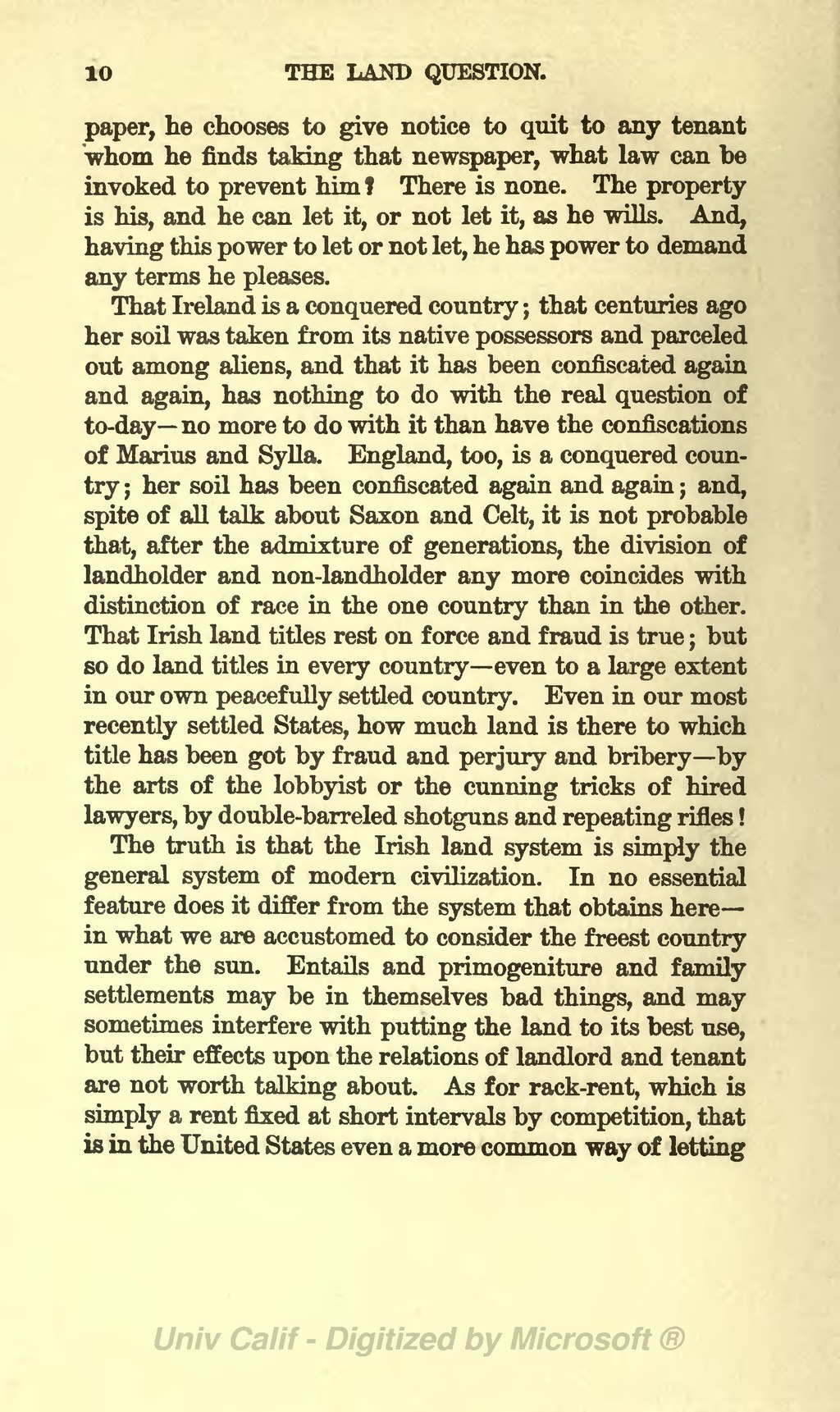paper, he chooses to give notice to quit to any tenant whom he finds taking that newspaper, what law can be invoked to prevent him? There is none. The property is his, and he can let it, or not let it, as he wills. And, having this power to let or not let, he has power to demand any terms he pleases.
That Ireland is a conquered country; that centuries ago her soil was taken from its native possessors and parceled out among aliens, and that it has been confiscated again and again, has nothing to do with the real question of to-day—no more to do with it than have the confiscations of Marius and Sylla. England, too, is a conquered country; her soil has been confiscated again and again; and, spite of all talk about Saxon and Celt, it is not probable that, after the admixture of generations, the division of landholder and non-landholder any more coincides with distinction of race in the one country than in the other. That Irish land titles rest on force and fraud is true; but so do land titles in every country—even to a large extent in our own peacefully settled country. Even in our most recently settled States, how much land is there to which title has been got by fraud and perjury and bribery by the arts of the lobbyist or the cunning tricks of hired lawyers, by double-barreled shotguns and repeating rifles!
The truth is that the Irish land system is simply the general system of modern civilization. In no essential feature does it differ from the system that obtains here—in what we are accustomed to consider the freest country under the sun. Entails and primogeniture and family settlements may be in themselves bad things, and may sometimes interfere with putting the land to its best use, but their effects upon the relations of landlord and tenant are not worth talking about. As for rack-rent, which is simply a rent fixed at short intervals by competition, that is in the United States even a more common way of letting
